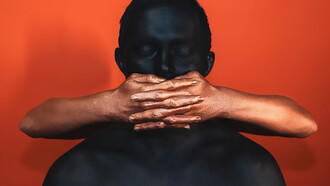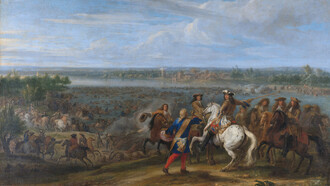President Richard Nixon believed that Zhou Enlai was one of the most amazing world leaders of the 20th Century. Yet, because Zhou was so self-effacing, and so loathe to promote himself, he is not well known in the West. However, if you ask virtually anyone in China about him, that person will tell you that Zhou was not only a great man in Chinese history, but a very good and decent man in general. The first Premier of China is, in fact, one of the most beloved figures in modern Chinese history. In the city of Huai’an, his birthplace, there is a sprawling memorial complex and museum dedicated to him.
He did make some mistakes, but, as his wife said after his death, “When the Party was right, Zhou Enlai was right. When the Party was wrong, Zhou Enlai was wrong.” Indeed, he made every effort to subordinate his will to the needs of the Chinese people and those who were in charge of fighting for and forging China’s social transformation. His ability to bend without breaking allowed him to weather every storm during the Maoist era while still being able to contribute to the welfare of his society, guide China toward greater economic prosperity, protect those who might have otherwise suffered injustice and reach out in friendship to the USA (which, in itself, had a huge and beneficial effect on modern Chinese history). He is the model of a socialist leader who readily engaged in self-examination and self-criticism in lieu of conflict and confrontation. He was a master in conflict resolution, patching up disagreements, creating compromise solutions and he worked until the day of his death for the betterment of the people of his beloved country. When China needed someone impressive to interface with the world, Zhou was regularly the go-to guy.
Huai’an is a city which played an integral part, as a commercial hub, in China’s history, when food was transported throughout major cities via the Great Canal and it regularly produced highly competent government officials like those in Zhou’s family. In China’s past, not having a male child was considered an insult to one’s dead ancestors. As Zhou’s uncle lay dying without an heir, Zhou was given to him and his wife as a surrogate child as a gesture to provide luck and to convince ancestral spirits that the uncle had a son. Zhou Enlai was, therefore, raised primarily by his aunt, a beautiful, sophisticated, gentle and cultured woman who painted and wrote poetry. It is believed that this remarkable person helped endow Zhou Enlai with the grace, intelligence and warmth that impressed so many people who met him throughout his life.
The museum also functions as a survey of Chinese history from the early 20th century to the end of the leadership of Mao. The last Chinese dynasty, the Qing Dynasty, is overthrown in 1911 as Zhou is a 13 year old student in Shenyang, where he is influenced by nationalist teachings and sees, firsthand, the presence of foreigners meddling to their own profit in Chinese affairs. From high school in Tianjin he goes to pursue higher education in Japan, with the financial support of a patron, but experiences disappointing results and returns to China to attend Nankai University. On May 4th 1919 students throughout the country rise up in protest over terms by the USA, Britain and France in the Treaty of Versailles, which not only refused to give German occupied territory in China back but capriciously awarded this territory to Japan. This became a tipping point for Zhou, and many in his generation, who lost faith in the West due to this type of hypocrisy.
The museum documents Zhou’s foray into radical journalism in Tianjin, where he neglects his studies but joins the underground political group called the Awakening Society, in which he meets the woman who will become his wife. As leader of the Awakening Society he is arrested and imprisoned for 6 months after leading a large protest against a government order prohibiting the boycotting of Japanese goods. Injustice in contemporary Chinese society is brought home to Zhou as he lives among prisoners made coarse and violent through extreme poverty caused by social and economic inequality. He then embarks to France, supported by another patron, to study various political ideologies. Here he is recruited to join the Paris branch of the Chinese Communist Party.
His efforts to help create a European Communist organization allow him to rise in prominence in the Party in China. His leadership and organization skills are so superb that in 1924, the year that the Communists and Nationalists agree to join forces to fight warlords who are controlling China, he becomes political director at Huangpu Military Academy. In April 1927 he organizes the capture of Shanghai utilizing worker brigades. After Chiang betrays the Communists and murders many of them in Shanghai, Zhou, then, as leader of the military arm of the Communist Party, leads the Nanchang Uprising, which is now recognized as marking the birth of the Peoples Liberation Army. Indeed, it is amazing that men like Zhou and Mao, with no formal military training, were often able to defeat seasoned military leaders among the Kuomintang. From 1927 to 1934, Zhou actively participates in leadership positions in the war against Chiang’s forces, finally bowing out to Mao as the supreme military leader, owing to Mao’s uncanny abilities to wage guerrilla warfare and consolidate power around himself.
He plays a prominent role in the Second United Front, against the Japanese invaders, after brokering Chiang’s release after Chiang is kidnapped by one of his own generals. Following victory in World War II he participates in the Civil War that ultimately leads to the new nation of the Peoples Republic of China on October 1, 1949. This caps a period for him of over 20 years of continual warfare to establish a state in which justice and equality of treatment might become possible in China. In government service he always strives for party unity. In the early 1960s he establishes a program to provide food for those harmed by the Great Leap Forward and toward the end of his life he promotes the Four Modernizations. After his death, when Deng opens the door to further economic development, he is able to do so because Zhou had been his ally and supporter.
A story goes that Napoleon had to take his army through territory controlled by some minor despot. Napoleon was told he could do this if he bowed to the tyrant. If he refused, the despot’s army would fight him every inch of the way. According to the story, Napoleon bowed to this autocrat to save thousands of his men. Of course this story is apocryphal because Napoleon was a megalomaniac who never hesitated to sacrifice the lives of the soldiers who fought under him. The story, however, points to something inside of us that every leader needs to examine. To what extent will you let your ego and sense of self-importance get in the way of your over-arching goal? What is remarkable about Zhou Enlai is that he was a fierce and brave fighter, but for his revered country and the party he had put his faith in, he regularly bowed to criticism, or the agendas of those superior to him. rather than creating harmful tumult. He knew when to defend himself and when to accept censure as he subsumed his own ego to the success of his party. This has been a misunderstood character trait among some folks who have written about him in the West. His capacity, however, to show this extreme flexibility, when it meant the welfare of his people, is why this memorial in Huai’an exists.















